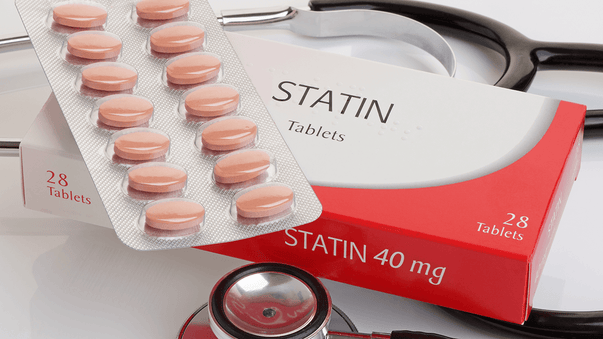Enhance Cognition with Nuts and Boswellia

A few things come to mind when I think about my grandparents’ home: a jar of butterscotch candies, the orange juice from frozen concentrate that I was convinced Grandma stocked just for me, and the container of nuts that sat on the table next to Grandpa’s armchair. The variety of nuts changed periodically. Knowing Grandma’s financial frugality, the nut selection was probably based on what was on sale that week. They have been on my mind a lot lately as Grandpa awaits surgery. I am grateful their minds are still sharp.
I came across an article describing findings from a 15-year observational study, the China Health Nutrition Survey. People over age 55 who consumed at least 10 g of nuts a day (about 2 teaspoons) were 40% less likely to have poor cognitive scores. That reminded me of Grandpa’s bowl of nuts. Diets, lifestyle, and genetics each play a role in cognitive function and aging. But I assume that you and I are both looking to go beyond that, to maximize our cognitive and physical functions and retain them while aging.
Boswellia may enhance memory. The effect of tablet containing Boswellia serrata and Melisa officinalis extract on older adults' memory: A randomized controlled trial. This study involved 70 participants in Iran between ages 60 and 74. They received either a placebo or a tablet that contained melissa officinalis and 27 mg of dried extract boswellia that had been standardized for boswellic acid and acetyl-11-keto-boswellic acid, taken twice a day. After 30 days, the treated group had significantly higher scores in overall memory and working memory. At the end of the 30 days, the auditory immediate memory and visual immediate memory was significantly higher in the treatment group than the placebo group.
Caffeine may delay muscle fatigue in some genotypes. The effect of CYP1A2 genotype on the ergogenic properties of caffeine during resistance exercise: a randomized, double-blind, placebo-controlled, crossover study. This study looked specifically at the CYP1A2 gene. This gene codes for a liver enzyme that is involved in the breakdown of caffeine. The C allele at the rs762551 site slows the metabolism of caffeine. The AA genotype metabolizes caffeine more quickly, converting caffeine into theophylline, theobromine, and paraxanthine. This study involved 30 men with at least 1 year of resistance training experience, in which they completed at least three resistance training sessions per week, and used caffeine less than 70 mg/day (that is less than one cup of coffee). Participants each completed a resistance exercise test with the placebo and with the caffeine supplement in random order with a week between tests. At baseline, the participants’ repetition maximum was determined for bench press, leg press, seated cable row, and shoulder press. Participants were given a placebo or caffeine (6 mg/kg body weight) 60 minutes before completing three sets of bench press, leg press, seated cable row, and shoulder press at 85% of their repetition maximum until they were unable to maintain proper technique. The group that had the AA genotype for the CYP1A2 gene performed significantly more repetitions after taking caffeine, but caffeine did not improve the performance of athletes who carried the A/C or CC genotypes. The authors concluded that caffeine delayed fatigue in the men with the AA genotype.
Caffeine may enhance strength. Effects of Caffeine Supplementation on Power Performance in a Flywheel Device: A Randomised, Double-Blind Cross-Over Study. This study involved 24 active men, aged 18-27, who participated in resistance training 1-2 times a week, could complete a half-squat greater than 1.5 times their body weight, and had a daily intake less than 62mg caffeine (less than 1 cup of coffee). Participants received a placebo or caffeine supplement (6 mg/kg body weight) 45 minutes before testing. While participants completed a half squat, a flywheel device was used to assess leg power outcomes at various inertial loads (i.e., 0.025, 0.050, 0.075 and 0.100 kg·m−2). Both the mean power and peak power at each inertial load were recorded by the equipment. The test was completed on two different days, one day with placebo and one day with caffeine in random order. The mean power and peak power were greater at all inertial loads after caffeine ingestion. The researchers concluded that caffeine “may be considered to maximise on-field physical performance in those sports characterised by high demands of resistance.”
Thrivous Tenacity
Thrivous develops Tenacity Arthroprotector to enhance healthy joint and bone function for better aging. Each serving provides a clinical dose of Boswellia Serrata. As indicated in the study above, Boswellia may also enhance memory. Tenacity is available for purchase online in the Thrivous store.
More Articles
Don't fall behind! Thrivous monitors new human studies of nootropic and geroprotector supplements, so you can make the best decisions based on the latest science. Supplement Science Updates are part of the free Thrivous newsletter. Subscribe now to receive email about human enhancement, nootropics, and geroprotectors, as well as company news and deals.
Read more articles at Thrivous, the human enhancement company. You can browse recent articles in Thrivous Views. See other Supplement Science Update articles. Or check out an article below.
-
Physical Activity Linked to Mental Wellbeing
Frontier biomedical research continues to advance, as shown by the recent news summaries below. But we shouldn’t forget what we ...
-
Biotech Advances But Regimen Adherence Is Poor
Science fiction-like breakthroughs in healthcare and biotech may not happen each week, but this doesn’t mean things aren’t advancing in ...



